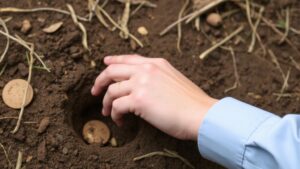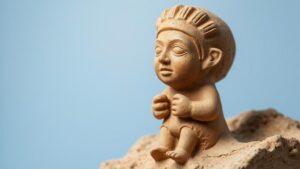Using Certification Services to Increase the Value of Rare Finds
Using Certification Services to Increase the Value of Rare Finds
The collection of rare finds–be it antiques, coins, stamps, or natural specimens–presents both opportunity and risk for collectors and investors alike. One of the most effective methods to elevate the perceived and actual value of these items lies in utilizing certification services. Certification offers a reliable means to authenticate, appraise, and provide provenance for valuable pieces, ultimately making them more desirable in the marketplace. This article delves into the mechanisms, benefits, and real-world applications of certification services in enhancing the value of rare finds.
Understanding Certification Services
Certification services are professional entities that assess and authenticate items with specific standards and methodologies. These services typically involve a comprehensive evaluation of an item to verify its authenticity, condition, and historical significance. The process often includes:
- Visual Inspection: Trained experts examine the item for signs of wear, repairs, alterations, and authenticity markers.
- Laboratory Testing: Advanced techniques, such as spectroscopy or carbon dating, may be employed for object verification.
- Documentation: A certificate accompanies the item, detailing its attributes, quality, and authenticity.
Such certification can apply to various types of collectibles, including but not limited to, gemological appraisal for gemstones, grading services for coins and sports cards, and authentication processes for art and artifacts.
The Value Proposition of Certification
Authentication and grading play a pivotal role in determining the market value of collectibles. Certified items often command higher prices than their non-certified counterparts due to several factors:
- Increased Trust: Certification mitigates buyer hesitation by assuring potential purchasers of the item’s authenticity and condition.
- Marketability: Items backed by credible certification frequently attract more competitive bids during auctions.
- Insurance and Resale: Certified items can be more easily insured and typically retain their value better, making them more appealing for resale.
For example, a certified rare coin can sell for 20% to 30% more than an identical uncategorized coin, according to industry reports from the Professional Coin Grading Service (PCGS). This pricing advantage showcases how certification acts as a tangible value enhancer in the collectibles market.
Case Studies in Certified Collectibles
To illustrate the impact of certification on rare finds, consider the following examples:
- The $1,000,000 Action Comics #1: This comic book, first published in 1938, is highly sought after by collectors. When a near-mint condition copy was certified by CGC (Certified Guaranty Company), it sold for over $3.2 million at auction, illustrating how certification can radically transform value.
- Fine Art Investments: Major auction houses, such as Sotheby’s and Christie’s, often rely on expert appraisals and certifications for art pieces. A certified artwork by a renowned artist can appreciate significantly, with some works increasing in value by over 300% after being authenticated.
These examples reinforce the notion that certification services are not just optional extras but crucial players in valuing rare finds.
Considerations for Utilization
Before engaging a certification service, there are several considerations a collector should keep in mind:
- Cost of Certification: Services can range from modest to exorbitant in pricing. Collectors should weigh the cost against the potential increase in value.
- Service Reputation: Not all certification services hold equal credibility. Its essential to select reputable organizations to ensure the certifications acceptance in the marketplace.
- Understanding the Process: Familiarize yourself with what the certification involves, including timelines and what an assessment entails.
By carefully evaluating these factors, collectors can make informed decisions that align with their financial goals.
Actionable Takeaways
To wrap up, utilizing certification services to authenticate and grade rare finds can significantly enhance their market value. Here are key takeaways for collectors:
- Conduct thorough research to identify reputable certification services in your collectibles domain.
- Evaluate the cost-benefit ratio of certification–will the investment enhance your item’s value enough to justify the expense?
- Keep documentation safe; a certificate of authenticity not only adds value but also serves as a historical record.
By strategically using certification services, collectors can not only protect their investments but also maximize their potential returns in a competitive market.



